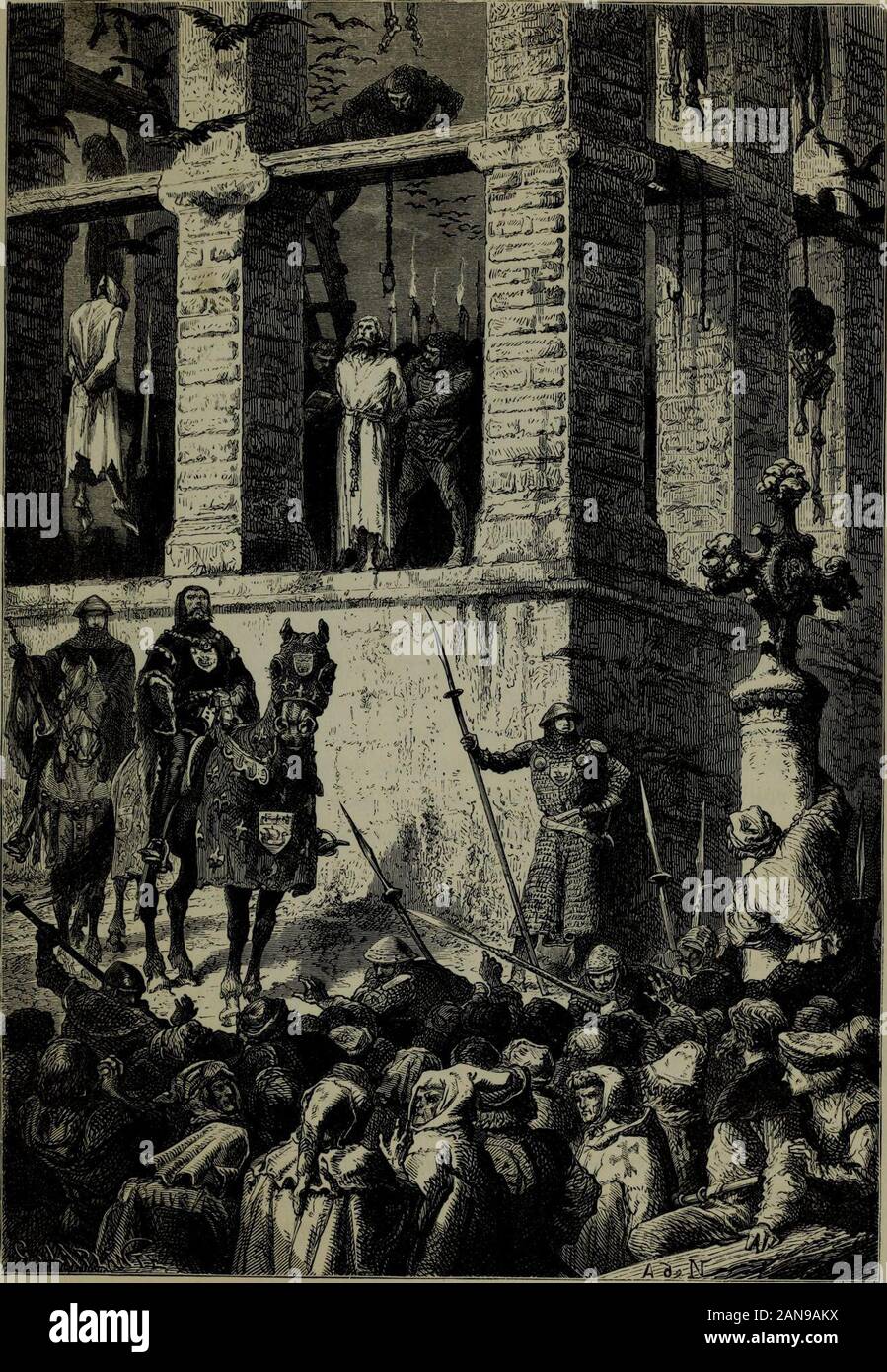A popular history of France : from the earliest times . None can tell, after this lapse oftime, whether this remorse proceeded from weakness of mindor sincerity of heart, and which of the two personages wasreally guilty; but, ages afterwards, such is the effect of blind,popular clamor and unrighteous judicial proceedings, that thecondemned lives in history as a victim and all but a guile-less being. Whilst the feudal aristocracy was thus avenging itself ofkingly tyranny, the spirit of Christianity was noiselessly pur-suing its work, the general enfranchisement of men. Louisthe Quarreller had t

Image details
Contributor:
The Reading Room / Alamy Stock PhotoImage ID:
2AN9AKXFile size:
7.1 MB (765.4 KB Compressed download)Releases:
Model - no | Property - noDo I need a release?Dimensions:
1315 x 1900 px | 22.3 x 32.2 cm | 8.8 x 12.7 inches | 150dpiMore information:
This image is a public domain image, which means either that copyright has expired in the image or the copyright holder has waived their copyright. Alamy charges you a fee for access to the high resolution copy of the image.
This image could have imperfections as it’s either historical or reportage.
A popular history of France : from the earliest times . None can tell, after this lapse oftime, whether this remorse proceeded from weakness of mindor sincerity of heart, and which of the two personages wasreally guilty; but, ages afterwards, such is the effect of blind, popular clamor and unrighteous judicial proceedings, that thecondemned lives in history as a victim and all but a guile-less being. Whilst the feudal aristocracy was thus avenging itself ofkingly tyranny, the spirit of Christianity was noiselessly pur-suing its work, the general enfranchisement of men. Louisthe Quarreller had to keep up the war with Flanders, whichwas continually being renewed ; and in order to find, withouthateful exactions, the necessary funds, he was advised to offerfreedom to the serfs of his domains. Accordingly he issued, on the 3d of July, 1315, an edict to the following effect: Whereas, according to natural right, every one should beborn free, and whereas, by certain customs which, from longage, have been introduced into and preserved to this day in. THE HANGING OF MARIGNY. — Page 200. Chap. XVIII.] THE KINGSHIP IN FRANCE. 201 our kingdom . . many persons amongst our common peoplehave fallen into the bonds of slavery, which much displeasethus; we, considering that our kingdom is called and named thekingdom of the Free (Franks), and willing that the mattershould in verity accord with the name . . have by our grandcouncil decreed and do decree that generally throughout ourwhole kingdom . . such serfdoms be redeemed to freedom, on fair and suitable conditions . . and we will, likewise, thatall other lords who have body-men (or serfs) do take exampleby us to bring them to freedom. Great credit has very properlybeen given to Louis the Quarreller for this edict; but it has notbeen sufficiently noticed that Philip the Handsome had himselfset his sons the example, for, on confirming the enfranchisementgranted by his brother Charles to the serfs in the countship ofValois, he had based